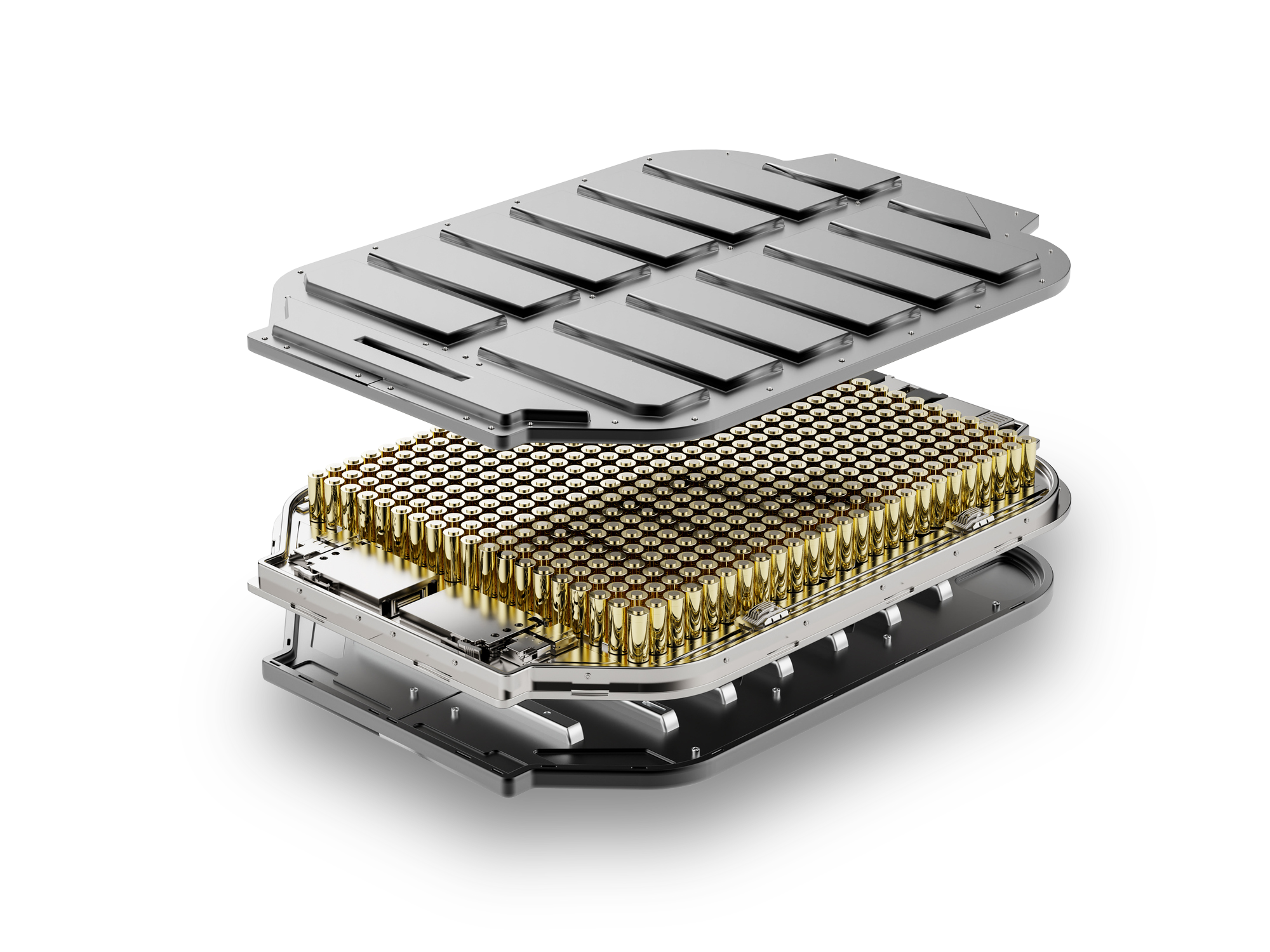Building better batteries
EnergyX is positioning itself to be a major player throughout the energy storage value chain From Brine to Battery™. Lithium batteries have been identified as a key part of the future of the energy transition. Their implementation in electric mobility and other projects has shown just how versatile they can be.
Introducing Solis™
Revolutionizing the traditional Lithium-ion battery. Scroll to watch our battery innovation unfold.
As renewable energy demand soars, the need for low cost, large-scale energy storage systems is also rising.
Lithium Metal is the most energy dense way to store lithium within a battery. Although battery capacity is cathode limited, starting with a thin layer of lithium as the anode transitions the battery from a lithium deficient system – such is current lithium-ion batteries – to a lithium excess system allowing. This allows for longer cycle life, greater energy density, and faster charging times.
EnergyX has developed proprietary electrolyte technology to safely enable low-cost lithium metal anode rechargeable batteries to take advantage of all of these performance improvements over traditional lithium-ion batteries.

Improved Energy Density

EnergyX’s electrolyte technology is cathode versatile with the ability to be paired with any industrially relevant cathode chemistry depending on the application. Through transitioning to a pure lithium metal anode rather than utilizing a host structure, our electrolyte technology can drastically improve the energy density of rechargeable batteries normalized by volume and by weight over that of current lithium-ion technology with the same cathode materials. Additionally, our technology is flexible and can accommodate future advancements to cathode technology for lithium-based rechargeable batteries.

EnergyX’s electrolyte technology is cathode versatile with the ability to be paired with any industrially relevant cathode chemistry depending on the application. Through transitioning to a pure lithium metal anode rather than utilizing a host structure, our electrolyte technology can drastically improve the energy density of rechargeable batteries normalized by volume and by weight over that of current lithium-ion technology with the same cathode materials. Additionally, our technology is flexible and can accommodate future advancements to cathode technology for lithium-based rechargeable batteries.
